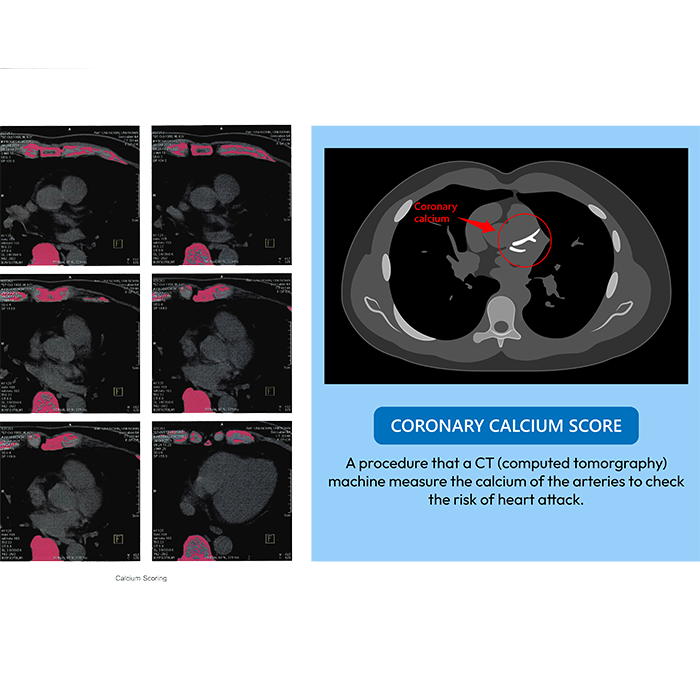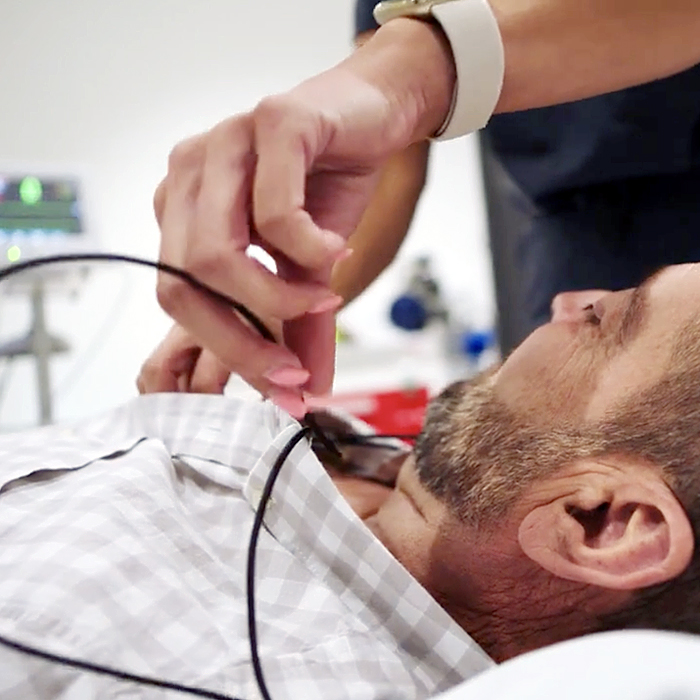Coronary Calcium CT Scan
A coronary calcium CT scan, also known as a heart scan, is a non-invasive imaging test that uses a computed tomography (CT) scanner to detect calcium deposits in the coronary arteries. These deposits, known as plaque, can narrow the arteries and increase the risk of heart disease.

Why Do I Need A Calcium CT Scan?
It is used to evaluate a patient's risk for coronary artery disease (CAD) by detecting calcified plaque in the arteries, especially for asymptomatic individuals with intermediate risk factors like high cholesterol, high blood pressure, diabetes, a family history of early heart disease, or a history of smoking. The scan produces a Coronary Artery Calcium (CAC) score, which helps predict future heart attacks and informs treatment decisions. A doctor may recommend a coronary CT scan if you have symptoms of heart disease, such as recurring chest pain or shortness of breath, or to evaluate risk factors like a family history of heart disease, high cholesterol, or diabetes.
Key Benefits
- Detects Coronary Artery Disease (CAD): The scan identifies plaque buildup, narrowing, and blockages in the coronary arteries, which are the main arteries supplying blood to the heart.
- Provides a Calcium Score: A coronary calcium scan measures calcium deposits in the arteries, providing a score that indicates your risk for heart disease.
- Rules out Heart Problems: It's a useful tool for "ruling out" a heart problem as the cause of symptoms like chest pain or shortness of breath.
- Evaluates Heart Function: Beyond artery blockages, the scan can also assess the heart's pumping function and identify structural issues.
- Offers 3D Imaging: The CT uses X-rays to generate high-resolution, 3D images of the heart and surrounding structures, allowing for a detailed anatomical view.
- Minimally Invasive: Compared to other procedures, a cardiac CT is a non-invasive imaging technique.
- Informs Treatment Decisions: The detailed information provided by the scan helps doctors decide if you need further testing, medication, lifestyle changes, or potentially surgery.

What To Expect During The Procedure?
- You will lie on a moveable table that slides into a doughnut-shaped CT scanner.
- Small, adhesive electrodes will be placed on your chest to monitor your heart rhythm.
- The CT scanner will take a series of images of your coronary arteries.
- The images are analyzed to calculate a calcium score, which indicates the amount of calcium buildup.
What To Expect After The Procedure?
Unlike some other CT scans, a calcium scoring test does not use an injection of contrast dye, so you won't experience any side effects from it. You can generally resume normal activities immediately, as there is no downtime and no contrast dye is typically used. Your doctor will receive the results from a radiologist within a few days and will then schedule a follow-up to discuss your Agatston score, also known as a coronary calcium score. This score helps determine your risk for future heart attack and guides treatment decisions, which may include lifestyle changes, medication, or additional testing.
Coronary Calcium Score



